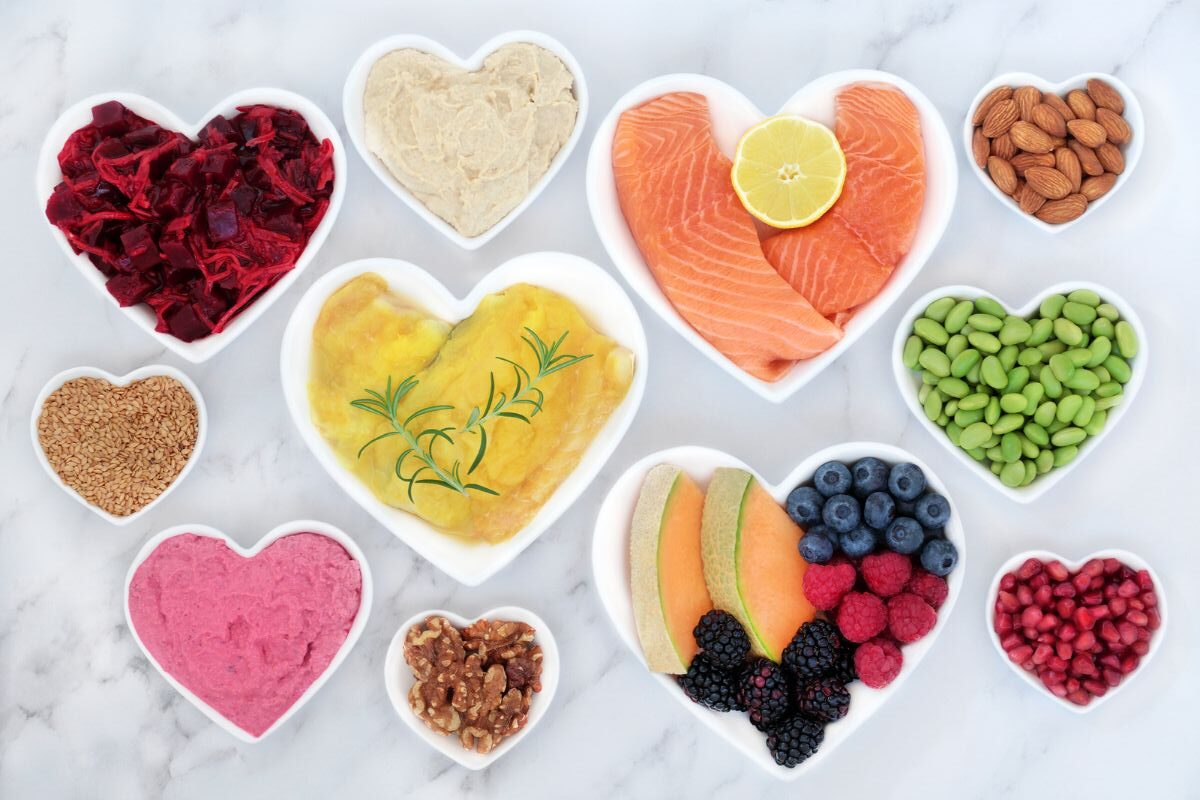
Be Kind to Your Heart: Supporting Your Heart Through Nutrition
Heart disease is the leading cause of death in the United States. The good news is that creating healthy habits can decrease your chance of developing heart disease. There are so many ways to be proactive in taking care of your heart health such as exercising, managing stress, reducing sodium intake, switching to healthy fats, and increasing your soluble fiber intake.
Reminder: Don’t overwhelm yourself with lifestyle changes. Reflect on your habits. What is one thing that you would like to work on? Eating more vegetables? Going for consistent walks? Set yourself up for long-term success by making one or two achievable lifestyle changes. If you try to make too many changes at once, you have a higher chance of not meeting your goals.
Let’s look at how nutrition can impact heart health.
Sodium
- Excess sodium intake can lead to high blood pressure that can increase the risk of heart disease, stroke, and kidney disease.
- Sodium is in breads, pizza, sandwiches, soups, tacos, condiments, snack foods, deli, and cured meats (bacon, hot dogs, sausages, etc.). Cutting down on portions of these foods can decrease your sodium intake.
- Check out this infographic for simple ways to decrease your sodium intake.
Fats
- There are two types of fats in our diets: healthy fats (monounsaturated and polyunsaturated) and fats to limit (saturated and trans-fat).
- Saturated and trans-fat raises LDL (lousy) cholesterol and increases the risk for heart disease. Limit your intake of foods that are higher in these fats like butter, margarine, lard, heavy cream, sausage, hot dogs, bologna, salami, and baked good (cookies, doughnuts, etc.) and snack items (crackers).
- The healthy fats can help increase HDL also known as the “good” cholesterol. Foods that contain healthy fats are avocado, nuts, peanut butter, salmon, tuna, flaxseed, olive oil, etc.
- Calories add up quickly with the healthy fats. It’s important to exercise portion control with healthy fats. A serving of nuts is ¼ cup (a small handful) and a serving of peanut butter is 2 tablespoons (about the size of a ping-pong ball). To put it into perspective, ¼ cup of almonds has about 160 calories. If you had multiple handfuls then it could quickly add up to 400-500 calories.
Added Sugar
- You might associate too much added sugar with weight gain but you might be surprised to find out that too much added sugar can also increase blood pressure, which increases the risk of heart disease.
- Added sugar is found in many foods including pop, desserts, sweetened cereal (Honey Nut Cheerios, Frosted Flakes, etc.), flavored oatmeal, and certain dried and canned fruit.
- Pick items that are lower in added sugar. For example, pick raisins over craisins. The craisins have sugar added to them to help sweeten them. On the other hand, raisins do not contain added sugar and would be a great addition to a meal or snack.
Soluble Fiber
Soluble fiber lowers LDL (lousy) cholesterol and is found naturally in many types of foods including fruits, vegetables, beans, lentils, oats, flaxseed, etc. Incorporate more foods that contain soluble fiber.
Tips for adding more fiber
- Try including a serving of fruit and vegetables at meals to increase your fiber intake.
- Add beans or lentils to soups, taco meat, salad, etc.
- Sprinkle ground flaxseed into yogurt, smoothies, cereal, etc.
Remember, work on one or two dietary changes at a time. Set a goal of adding a fruit and/or veggie to your lunch 3 days a week and work up to 5 days as you feel comfortable.
Written by BWS Dietitian-Melissa Morningstar Vajas RD, LD
Continue reading February 2023 Newsletter: Heart Healthy Grocery Shopping
